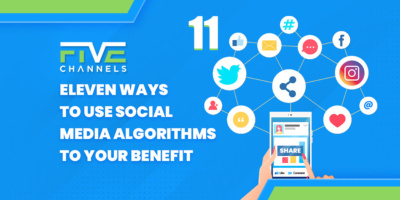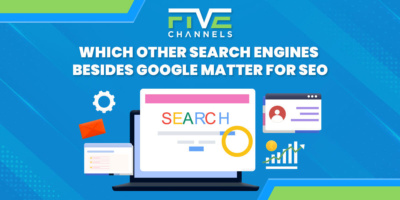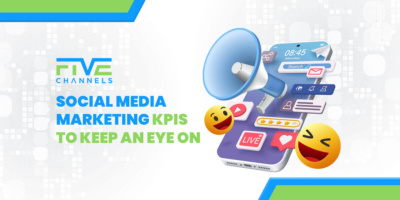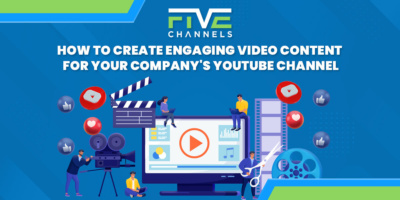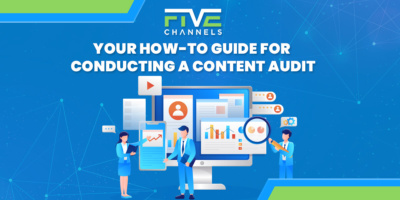SEO vs SEM: Which One’s Better for Your Biz?
Confused by the SEO vs SEM debate? Don’t worry. We’ll break it all down for you and show you tips on how to incorporate both into your digital marketing plan.
Unless you’ve been going through your digital marketing experience with packing peanuts in your ears, you’ve probably heard of SEO. You might have even heard of SEM. And you’re wondering what the heck is the difference between SEO vs SEM.
It’s more than just a letter. And it’s definitely worth investing in.
So what is the difference, and which one is better for your digital business growth?
 What is SEO?
What is SEO?
Ah SEO. Also known as the thing you’ve heard tossed around like a football if you’ve been digital marketing along with the rest of us in the 21st century.
If you still don’t know the difference between SEO, SEM and a social media account, brush off the cobwebs and pry those packing peanuts out of your ears, because we’ve got work to do.
SEO, or search engine optimization, is that thing you should definitely be doing if you want your business to have more return customers than the moon.
Basically, it’s one of the most useful digital marketing tools you have. No, we’re not even a little bit exaggerating.
How Does It Work?
SEO is basically what the name implies. It’s what helps search engines like Google, Bing, and Yahoo determine your ranking in search results.
This isn’t like your grade school rankings, the first result gets 33% of traffic, and 75% of users don’t scroll past the first page.
It works by using a set of rules that make your website more readable to search engines. Keywords are the obvious one, but there are also things like backlinks and web design and site usability.
Basically, you’re giving a search engine clues as to how to read your web page. A search engine’s web crawlers use these clues to skim your page and determine how good a match your site is to the search query.
What are the Benefits of SEO?
What aren’t the benefits of SEO?
Seriously though, the benefits of SEO vs SEM are nothing to sneeze at.
The big one is brand awareness. Remember how we said the first result gets the most traffic? If people can see you, they’re going to click on you.
And because they click on a result that directly pertains to their search query, their conversion rate is higher.
It’s not just about what SEO can do for you, it’s about how unhappy search engines are when you don’t do your SEO (like web design, for example. There are some rookie SEO design errors that Google will slay you for).
Why It Matters
Before you delve into the question of SEO vs SEM, it’s important to answer this central question: why does SEO even matter?
Let’s put it this way.
Type SEO into your search bar. Doesn’t matter what search engine.
Results pop up. The most relevant ones are at the top. Are you going to click on them? And which ones will you click on?
Exactly. Users trust search engines, and they’ve been trained by now to know that the most relevant result is on top.
Without SEO, you’re never even in the running.
There’s also this simple fact: because many SEO best practices involve making your website more readable to humans and web crawlers alike, the result is a website that’s just better designed. And that makes everyone happier.
What is SEM?
And now, the other question in the SEO vs SEM debate: what is SEM?
Well, we know the O in SEO means optimization. And we know SEM is related. That gives you an idea where this is going.
SEM is short for search engine marketing. In ye olden days, SEM encompassed all of SEO. But these days, SEO gets all the attention, even though you’re probably guilty of using SEM without realizing it.
SEO and SEM share the goal of making your website more visible in search engine results. SEM has more to do with the green stuff, money and gold old fashioned paid marketing.
How Does It Work?
SEM consists of the stuff that SEO doesn’t cover. Namely, paid advertising.
Google Adwords is a great example of SEM. Basically, you pay the search engine in question to put up an advertisement for you for certain keyword searches. Facebook banner ads are also a prime example.
Basically, you take the platform in question and use paid marketing to target a certain audience based on their interests, locations and search queries.
What are the Benefits of SEM?
Pull up Google and do a search.
What’s the first thing that pops up?
Usually, it’s a search result with the little denotation that says it’s an ad.
It’s the search engine equivalent of buying advertising space in order to get higher in the search results. It can work great to help you get started, especially if you’re new to the game and your SEO isn’t ready to run with the big dogs quite yet.
Why It Matters
In the SEO vs SEM question, keep this in mind: SEM is up there with the most important web traffic out there. Why?
Because it’s targeted. You’re making sure that you get clicks from a very specific customer base.
That means that the people who find you are already interested in what you have to offer them, which means that if they click, there’s a higher chance that they’re going to convert.
SEO vs SEM: What’s the Difference?
If you like your marketing the same way you like your produce (organic) then you know the key difference in SEO vs SEM.
We said earlier that SEM covers paid marketing, and SEO is all the little things you do on your website to encourage the search engine to rank you more highly.
The key distinction in SEO vs SEM, then, is organic traffic vs inorganic traffic.
Which makes a lot of sense when you think about it, paid advertising isn’t considered organic traffic because it’s paid and targeted. Therefore, it’s really a matter of whether the search engine sends a searcher to you of its own accord or whether you pay the search engine to send that customer your way.
Which is Better for Your Business?
Which leads us to our next SEO vs SEM question: which is better for your business?
Well, they both have benefits. The question is what your website has to offer, and whether you’re using SEO and SEM the right way for your business.
First, let’s break down the pros and cons of both approaches. Then, examine rookie errors you’re probably making and how to fix them.
SEO Pros
There are a lot of benefits to SEO. The most obvious is brand awareness.
Think of it this way. People won’t buy from you if they don’t know who you are. And while there is any number of ways to get your would-be customers to find out about you, nothing quite matches SEO.
When your customers search your relevant keywords, SEO is what puts you right in front of them.
Plus, think of how many times you scrolled right past the ads in the search results.
It also helps make your brand stronger. That’s because if you’re smart about using your SEO to create quality content, the search engines (and your potential customers) will reward you for taking the time to be a resource.
If you show up high in search results when a customer does a search query, the customer is more likely to view you as a market authority.
SEO Cons
However, don’t get overexcited and assume SEO is always on top of the SEO vs SEM question.
The biggest drawback of SEO is that you’re rewarded for being an authority, and the more people who click means the higher you’ll rank. This is a great thing until you recall that it can take months to build this kind of authoritative base.
There’s also the fact that search engines are frequently updating their algorithms, which can change the rules of SEO and create new ranking factors altogether. If you’re not on top of your SEO game (or have the time to stay on top of it) your SEO strategies could get outdated.
SEM Pros
Where does SEM win the SEO vs SEM throw down?
The time to results ratio.
Because SEM is targeted marketing, you can start seeing results from your campaign far more quickly than your simultaneous SEO efforts.
Also, because it’s paid, and you can see exactly what that money is getting you in terms of traffic, it’s much easier to measure your ROI for SEM.
Oh, and that thing about search engines updating their algorithms? Fun fact about SEM: it won’t get outdated if the algorithm gets tweaked because the same standard operating procedures apply.
It’s also an easy thing to keep scaling up once you’ve hit the winning SEM formula because again, your rules aren’t getting rewritten every so often by a couple of computer guys in California.
SEM Cons
Think of how many times you scrolled right past the ads in the search results.
Exactly.
As a question of trust in SEO vs SEM, SEO usually wins.
When it comes to pay-per-click advertising that tends to characterize SEM campaigns, these ad campaigns can be affordable until suddenly they’re not. In fact, SEM campaigns that take off can become prohibitively expensive.
It’s also very easy, especially for e-commerce sites, to lean heavily on paid advertising. Which is fine until a) you can’t afford it anymore, b) someone does it better or c) your competitor gets wise and starts using SEO, leaving you behind in the dust with less money to catch up with.
Rookie SEO vs SEM Mistakes
Let’s talk about a few rookie potholes you’re probably going to hit while you untangle your SEO vs SEM plan.
If you’re a new business, then the choice between SEO and SEM often feels…well, pretty stinking obvious. SEO can take months to see results, whereas SEM (done the right way) can reward you pretty quickly.
So, you jump down the SEM rabbit hole.
Which works great for a while, until you realize that your web traffic is built on fair weather friends, they’ll stick with you in the beginning until someone else has a better offer.
Which is not the foundation of a solid online business.
It’s also easy to try to repair the problem with slapdash SEO. Which is actually worse for you.
See, SEO is somewhat complicated. The truly smart SEO marketers have spent a lot of time and research to make sure they’ve done it right, and in just the right amount.
Oh, and FYI, there’s such a thing as too much SEO. If you over-optimize, search engines will think you’re a robot and you’re spamming them.
They don’t like spam. They blackball you for spam.
Ditch SEO vs SEM – Make the Two Work Together
The smarter thing to do is to stop playing the SEO vs SEM game altogether.
That doesn’t mean throwing in the towel, logging off the internet forevermore and going to raise sheep in Australia.
The goal is to avoid leaning too heavily on one strategy or the other. Balance your immediate SEM results with your long-game SEO strategy. That way, you’re building yourself up as a market authority at the same time you’re creating an active customer base.
Master Your Digital Marketing
So you think you know your SEO?
No? No worries. It’s tricky. That’s why we have answers.
Check out our blog for all kinds of useful tips on how to up your digital marketing game, like our beginner’s guide to high-quality backlinks, or our post taking a closer look at augmented reality marketing.
But then, there are times when what you really need is an SEO and SEM pro to bring your digital marketing to the next level. For those times, get started with our free digital marketing review.
Owner and Chief Marketing Officer, Jason Hall, and his team specialize in creating brand awareness / traffic and lead generation / marketing funnel and conversion optimization, while utilizing the appropriate marketing channels available within your industry. With diverse clients throughout the world, Jason's team is well connected within many industries to assist with your marketing strategies. With no long term contracts and various levels of service, Jason's team will increase the quality of your online traffic, leads, and sales.
About the author...
Located in the heart of the Emerald Coast - Destin, FL, founder and Chief Marketing Officer, Jason Hall, and his team specialize in creating brand awareness / traffic and lead generation / marketing funnel and conversion optimization / and PR campaigns, while utilizing the appropriate marketing channels available within your industry.
With diverse clients throughout the world, Jason's team is well connected within many industries to assist with your marketing strategies. With no long term contracts and various levels of service, Jason's team will increase the quality of your online traffic, leads, and sales.



